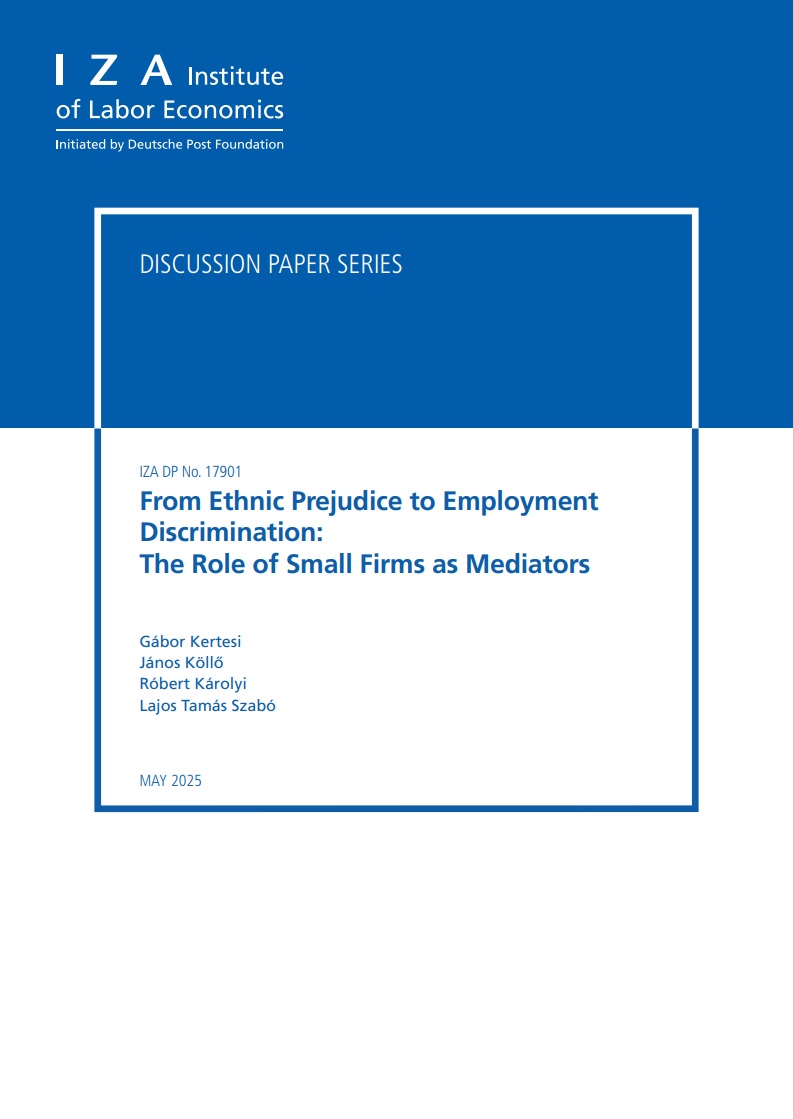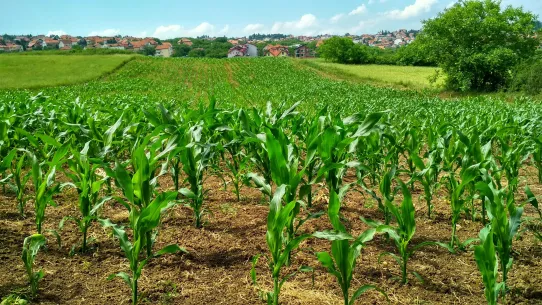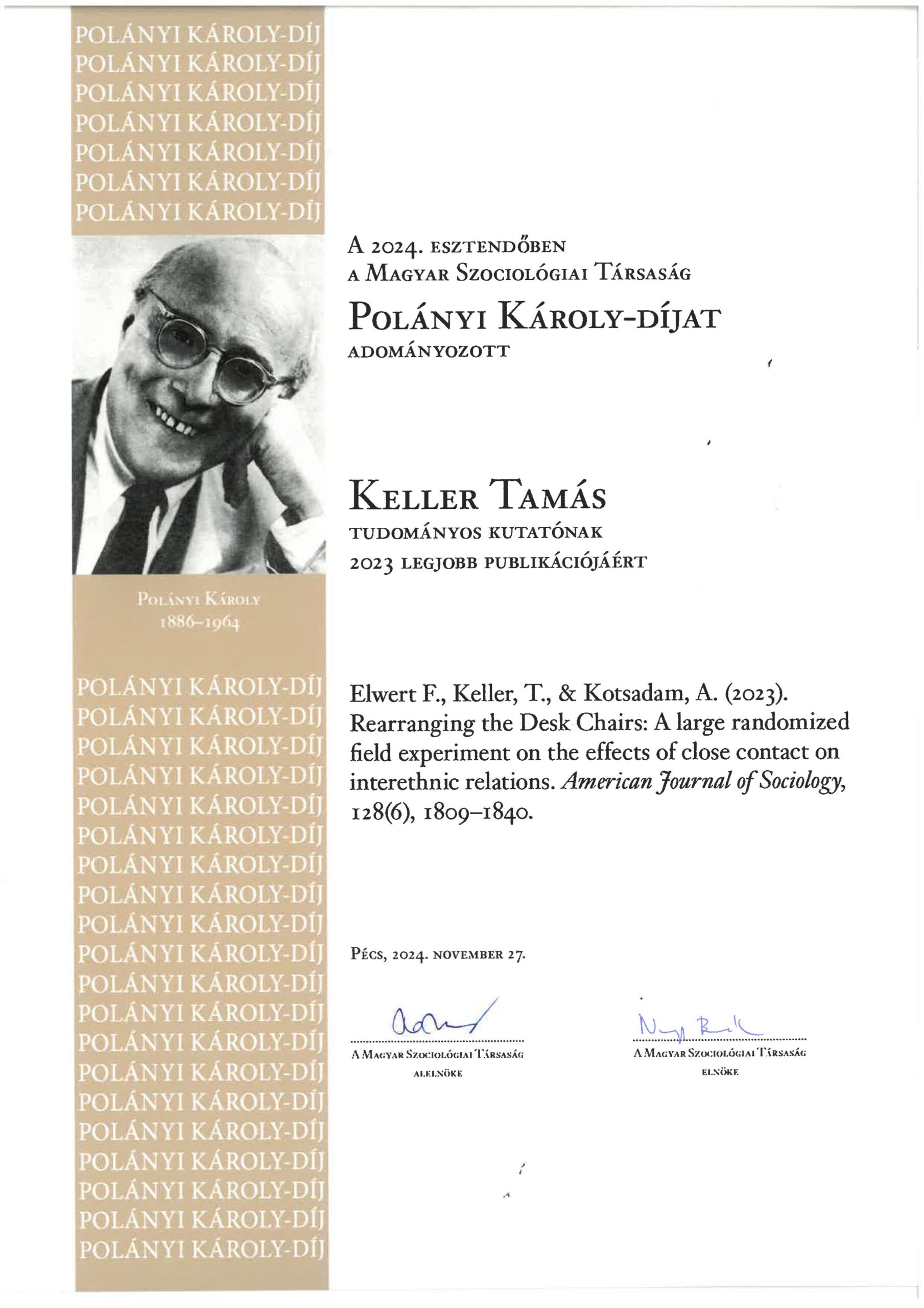Heterogeneity of Economic Expectations – Dissecting the Role of Socioeconomic Status
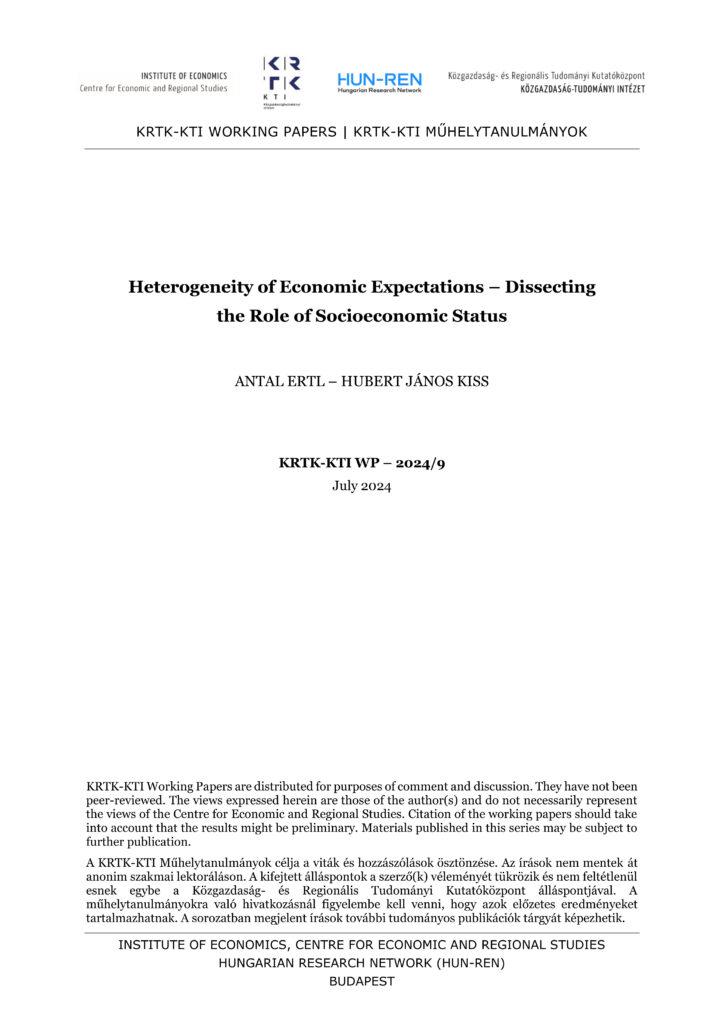
Economic decisions depend on economic expectations. Using Hungarian monthly survey data between 2000 and 2009, we show that the relationship between expectations (both at the macroeconomic and household levels) and socioeconomic status (SES), as represented by income rank and education level, is non-linear. In many instances, there is no significant difference in expectations between the […]
Health Shocks, Social Insurance, and Firms
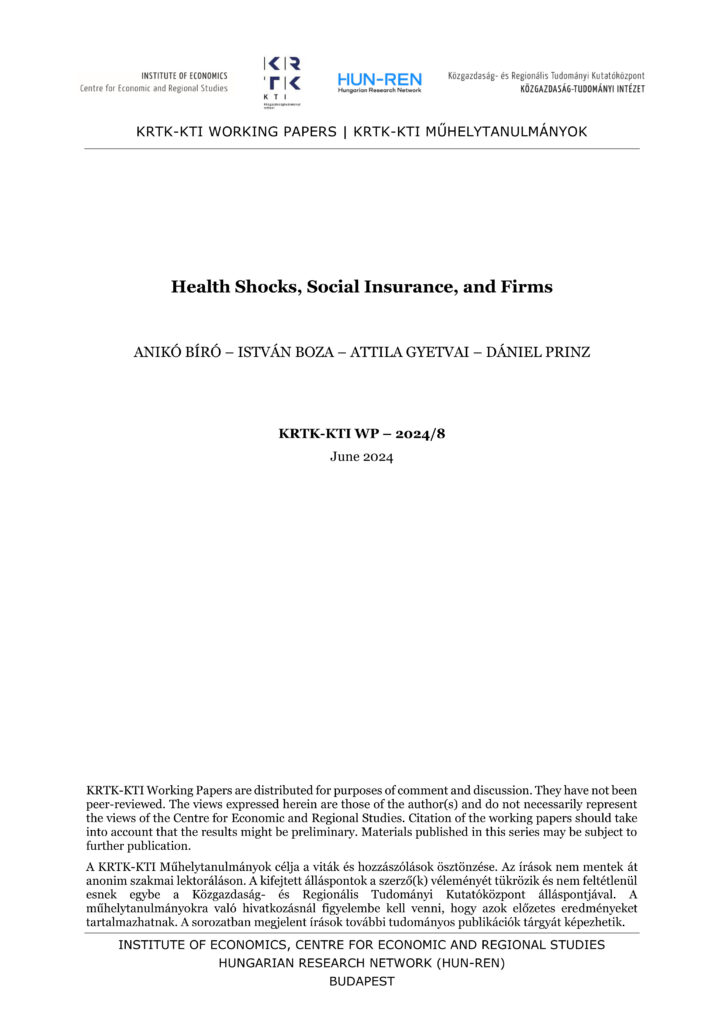
We study the role that firms play in social insurance benefit uptake after their workers experience health shocks. Social insurance in our setting, Hungary, is universal and comprehensive, thus allowing us to quantify the impact of firms on benefit uptake and labor market outcomes on top of the social safety net. Using matched employer-employee administrative […]
Regional resilience and the network structure of inter-industry labour flows
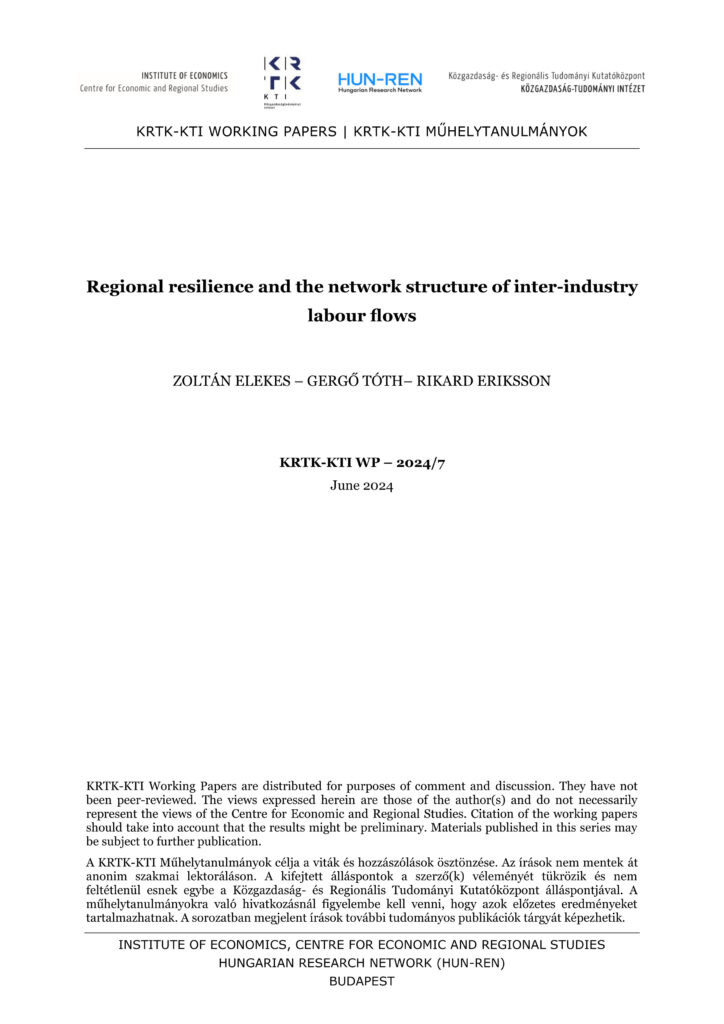
This paper explores how the network structure of local inter-industry labour flows relates to regional economic resilience across 72 local labour markets in Sweden. Drawing on recent advancements in network science, we stress-test these networks against the sequential elimination of their nodes, finding substantial heterogeneity in network robustness across regions. Regression analysis with LASSO selection […]
What makes a new doctor better? Effects of new primary care physicians on healthcare provision
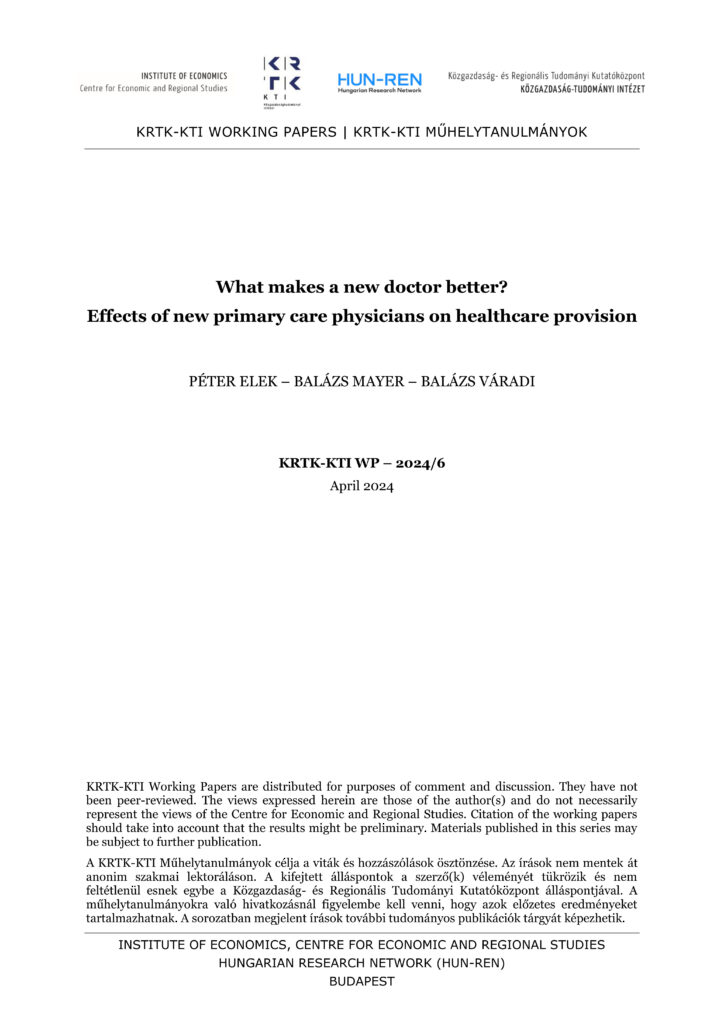
Using individual-level administrative panel data of all diabetic patients in Hungary for years 2010-2017, we analyze the effects of primary care characteristics on healthcare provision in rural areas by exploiting the change of the person of the general practitioner (GP), be it a temporary substitution or a permanent new doctor. We estimate event study models […]
Economic Preferences across Generations and Family Clusters: A Comment
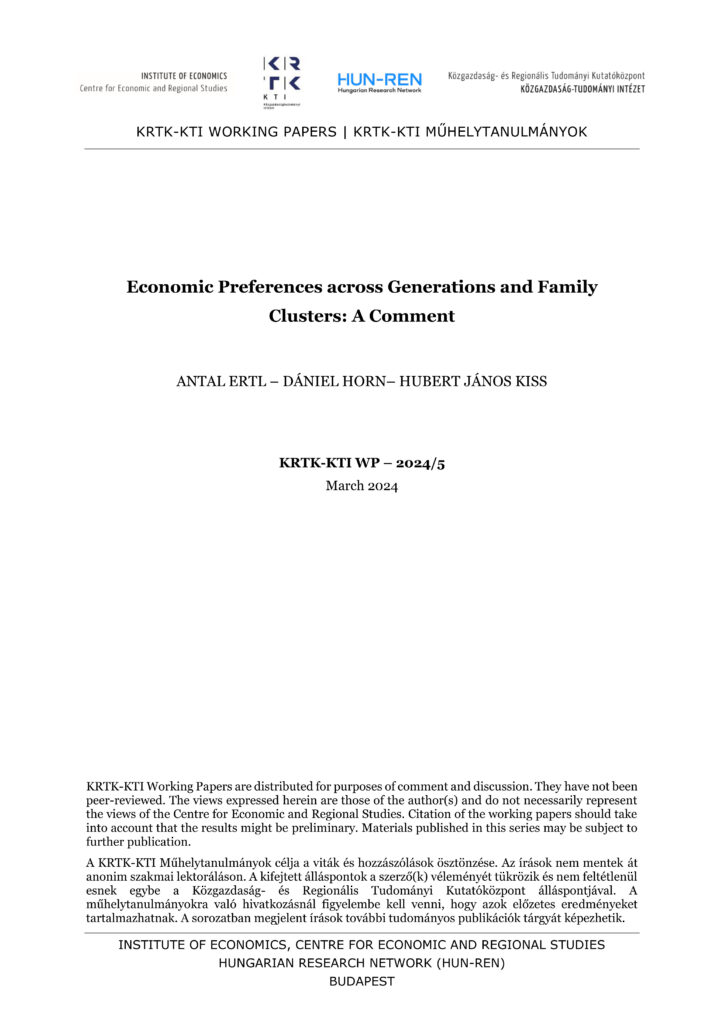
Chowdhury, Sutter and Zimmermann (2022) assessed the risk, time, and social preferences of family members in rural Bangladesh, presenting two main findings. First, there is a strong and positive association between family members’ preferences, even when controlling for personality traits and family background. Second, families can be grouped into two clusters: approximately 20% of the […]
Endogenous language use and patience
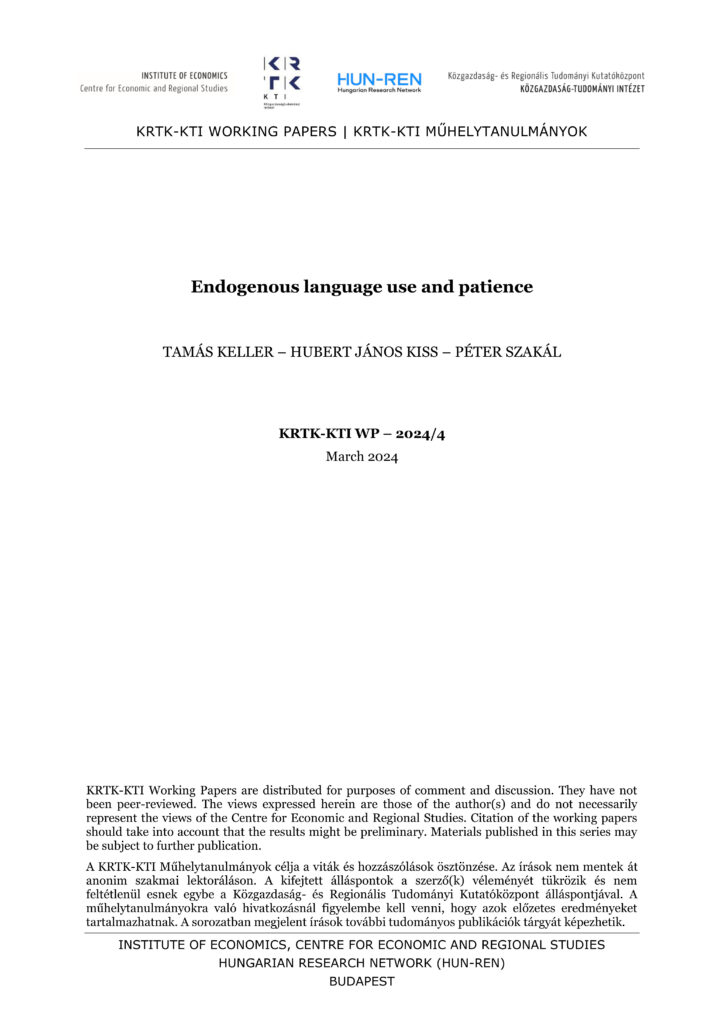
The linguistic-savings hypothesis posits that the grammatical marking of future events in languages is linked to future-oriented behavior. Recent experimental studies have suggested patience as a possible mechanism connecting language use and future-oriented behavior by exogenously manipulating what language is used. Our paper explores the association between patience and the language that people naturally use, […]
Family foster care or residential care: the impact of home environment on children raised in state care
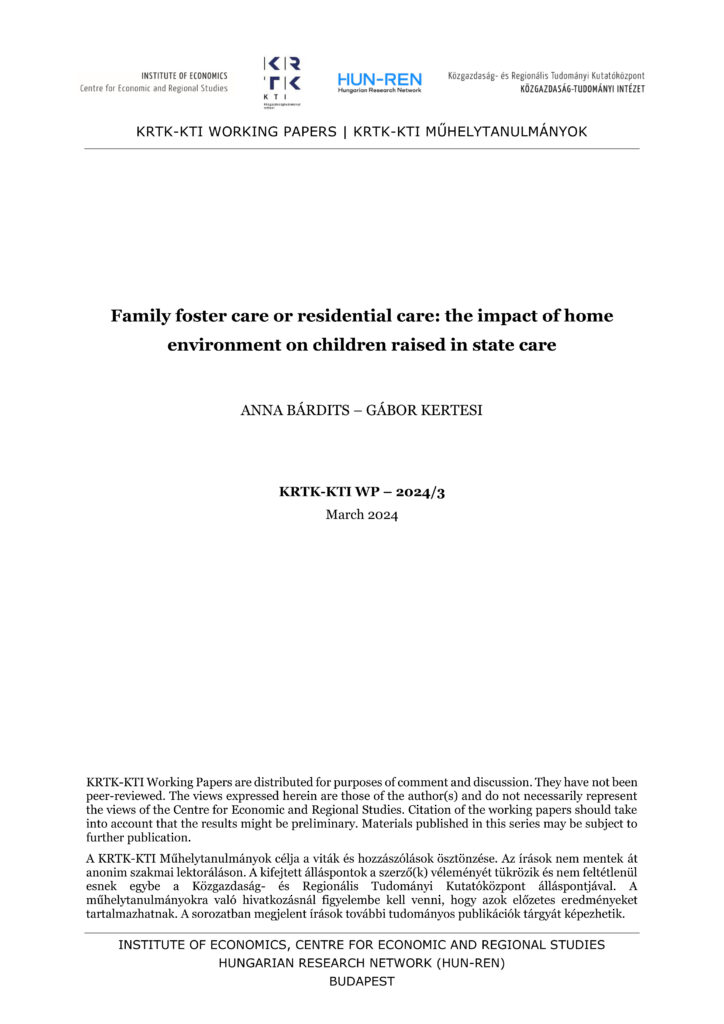
This paper investigates how the type of home environment – family foster care or residential care – affects the adult outcomes of individuals who were raised in state care during adolescence. While it is established in the literature that living in residential care is detrimental for babies, the effect of living in different types of […]
Statistical overstatement of average wages and its impact on pensions: the case of Hungary
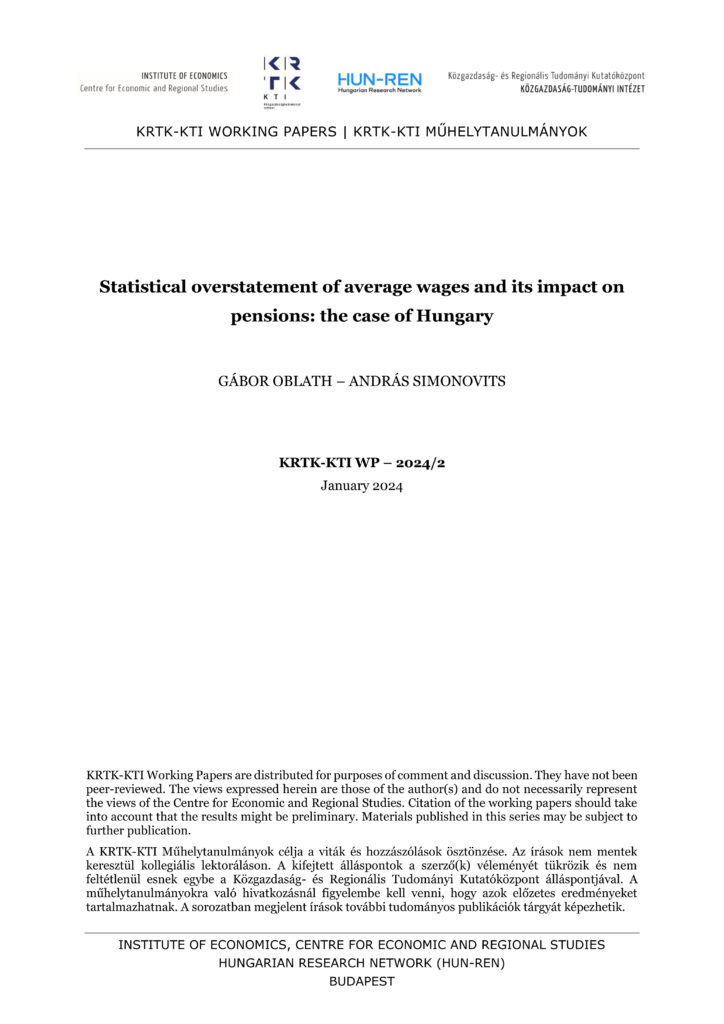
In Hungary, initial pensions are indexed to average net wages, reported by official earnings statistics (ES), which does not cover the economy as whole. However, there is alternative statistical source on labour income, the national accounts (NA), intended to cover the total economy. The latter indicate a markedly lower rate of growth in wages than […]
John von Neumann’s game-theoretic legacy
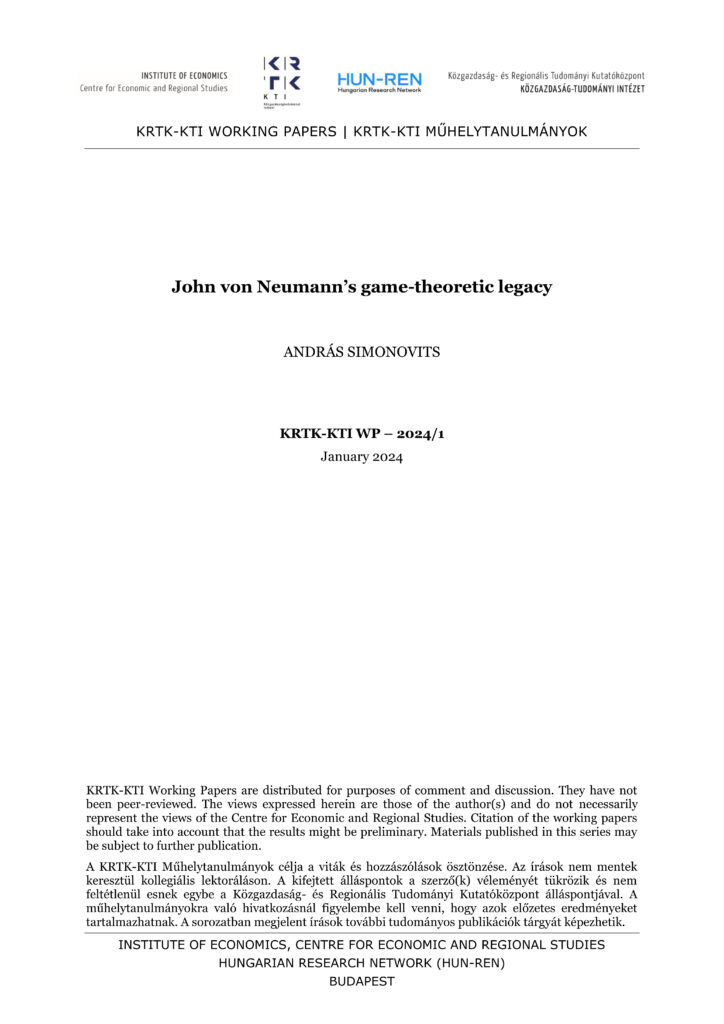
John von Neumann (Budapest, 1903–Washington D.C., 1957) was an exceptional polymath, who made fundamental contributions to mathematical logics, functional analysis, quantum mechanics, game theory, computer architecture and automata theory. In this brief paper, I shall review the game-theoretic results of von Neumann and their legacy in an informal way.
Comparative analysis of the evolution of the CE4 countries’ national innovation systems and their innovation performance in 2000–2020
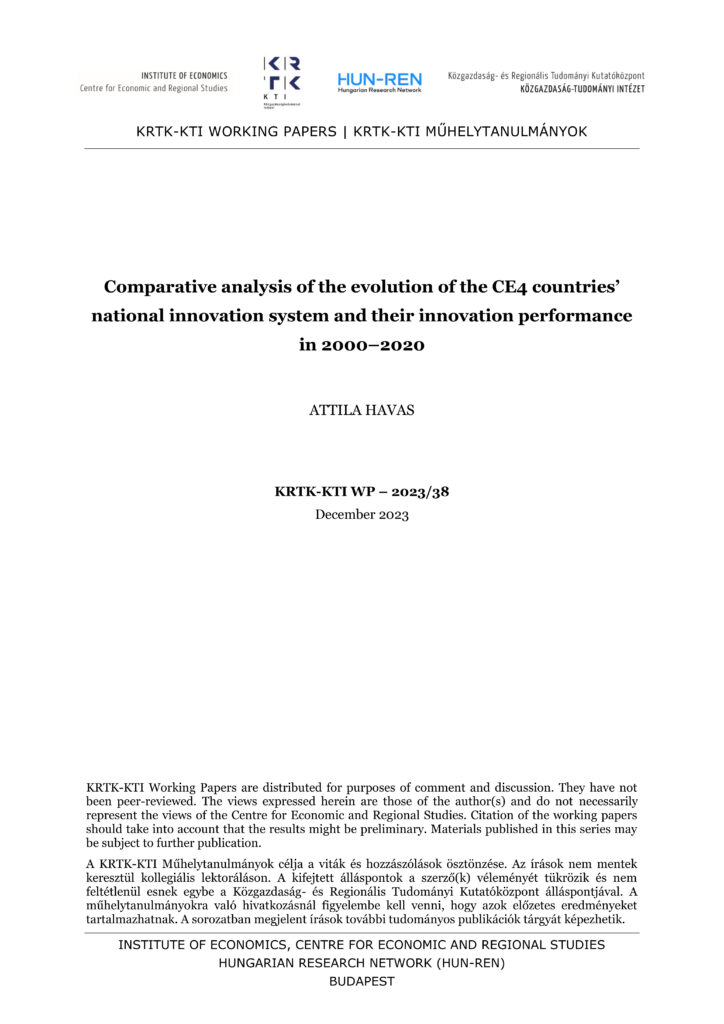
This paper compares the evolution of CE4 countries’ (Czechia, Hungary, Poland, and Slovakia) national innovation systems, as well as their innovation performance. Its analytical framework draws on evolutionary (and institutional) economics of innovation. Given the structural features and the level of socio-economic development in the CE4 countries, as well as the dominant way of thinking […]
Futures of the interpenetration of criminal and lawful economic activities in the European Union in 2035: Scenarios and policy implications
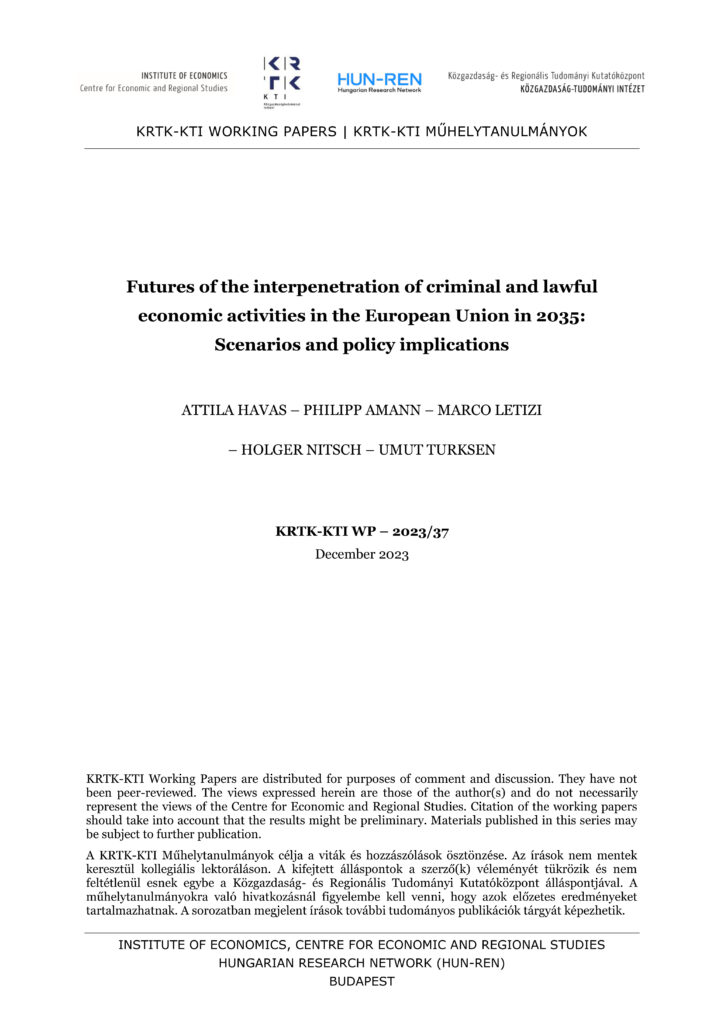
Policy-makers – working on various domains, notably regulations, home affairs, security, science, technology, and innovation (STI) policies – need to pay close attention to possible new ways and methods for the interpenetration of criminal and lawful economic activities. This paper is aimed at assisting these policy-makers by presenting four possible futures (scenarios) on the interpenetration […]
Does cutting the value of unemployment insurance benefits affect take-up? Evidence from Hungary
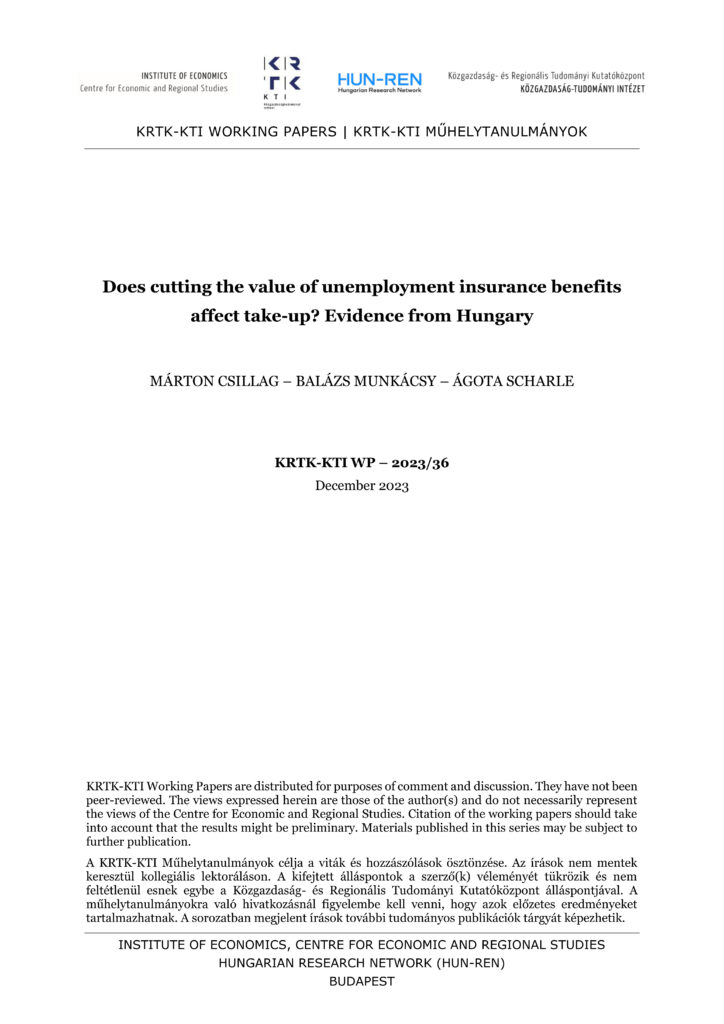
Does a drastic cut in in potential benefit duration affect the take-up of unemployment insurance benefits among those eligible? We evaluate a policy change reducing the maximum length of UI benefits from 9 to 3 months in Hungary at the end of 2011. We rely on rich longitudinal matched administrative data, which allows us to […]


